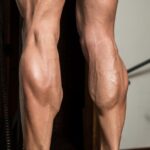
Why Do I Run Out of Breath When I Exercise? Causes and Solutions
Page Contents
Have you ever experienced running out of breath while exercising? It’s a common phenomenon that can be quite frustrating and may even hinder your workout goals. In this article, we’ll explore the science behind why we run out of breath during exercise and what we can do to prevent it.
One of the primary reasons we run out of breath during exercise is due to increased oxygen demand by the body. When we exercise, our muscles require more oxygen to produce energy, leading to an increased breathing rate. This increased breathing rate can cause shortness of breath if our lungs are not able to keep up with the demand. Ther reasons include:
Lack of fitness
One of the most common reasons people run out of breath when exercising is a lack of fitness. If you’re new to exercise or haven’t worked out in a while, your body may not be used to the increased physical activity, which can lead to shortness of breath. As you continue to exercise regularly, your body will become more efficient at using oxygen, and you’ll find that you can exercise for longer periods without getting out of breath.
Poor breathing technique
Believe it or not, the way you breathe while exercising can also affect your ability to maintain your breath. Many people take shallow breaths while exercising, which can leave them feeling breathless. On the other hand, deep breathing exercises can help you take in more oxygen and release more carbon dioxide, which can help you maintain your breath during exercise. Try to breathe deeply through your nose and exhale through your mouth during your workout. This will help you get more oxygen to your muscles, which can help you maintain your breath and keep going.
Health issues
If you’re experiencing persistent shortness of breath during exercise, it’s essential to speak with your doctor. Some health conditions, such as asthma, can cause shortness of breath during exercise. If you have a health condition that affects your breathing, your doctor can work with you to create a plan to help you manage your symptoms and continue to exercise safely.
Dehydration
Dehydration can also cause shortness of breath during exercise. When you’re dehydrated, your body has to work harder to supply oxygen to your muscles, which can leave you feeling breathless. Make sure you’re drinking enough water before, during, and after your workout to stay hydrated.
Running out of breath during exercise is a common experience, but it’s essential to understand the reasons why this might be happening. Lack of fitness, poor breathing technique, health issues, and dehydration are some of the most common causes of shortness of breath during exercise. By taking steps to improve your fitness, breathing technique, and staying hydrated, you can maintain your breath during exercise and get the most out of your workout. Remember, always listen to your body and talk to your doctor if you’re experiencing persistent shortness of breath during exercise.
How do you fix running out of breath when exercising?
If you’re one of those people who run out of breath when exercising, you’re probably wondering how you can fix this issue. The good news is that there are several things you can do to improve your breathing and reduce shortness of breath during exercise. Here are some tips to help you fix running out of breath when exercising:
Improve your fitness
One of the best ways to fix running out of breath when exercising is to improve your fitness. As you become more physically fit, your body becomes more efficient at using oxygen, which can help you exercise for longer periods without getting out of breath. Start by gradually increasing the intensity and duration of your workouts over time. This will help your body adapt to the increased demands of exercise and improve your fitness.
Practice proper breathing technique
Proper breathing technique is essential when it comes to exercise. When you’re exercising, it’s important to take deep breaths and exhale fully. Try to inhale through your nose and exhale through your mouth. This will help you get more oxygen to your muscles, which can help you maintain your breath during exercise. You can also try breathing exercises like yoga to help improve your breathing technique.
Stay hydrated
Dehydration can cause shortness of breath during exercise, so it’s essential to stay hydrated before, during, and after your workout. Make sure you’re drinking enough water throughout the day, and especially before your workout. You can also try drinking sports drinks that contain electrolytes to help replace the minerals lost through sweat.
Check for health issues
If you’re experiencing persistent shortness of breath during exercise, it’s important to speak with your doctor. They can check for underlying health issues like asthma or other respiratory conditions that may be affecting your breathing. If you do have a health condition, your doctor can work with you to create a plan to help you manage your symptoms and continue to exercise safely.
If you’re running out of breath when exercising, there are several things you can do to fix this issue. Improving your fitness, practicing proper breathing technique, staying hydrated, and checking for underlying health issues can all help you maintain your breath during exercise and get the most out of your workout. Remember, it’s important to listen to your body and take things slow when starting a new exercise routine. With time and practice, you can improve your breathing and achieve your fitness goals.
How do you know if shortness of breath when exercising is serious?
Shortness of breath during exercise can be a normal response to physical exertion, but in some cases, it can indicate a more serious underlying health issue. Here are some signs that shortness of breath when exercising might be serious:
It occurs suddenly and is severe
If you suddenly experience severe shortness of breath during exercise, it could be a sign of a serious medical condition like a heart attack or pulmonary embolism. Seek medical attention immediately if you experience sudden and severe shortness of breath during exercise.
It occurs even at low intensity
If you experience shortness of breath even when engaging in low-intensity activities like walking, it could be a sign of an underlying respiratory or cardiovascular condition. In this case, it’s essential to speak with your doctor to get a proper diagnosis and treatment.
It’s accompanied by other symptoms
If you experience shortness of breath during exercise and other symptoms like chest pain, dizziness, or fainting, it could be a sign of a serious medical condition. Seek medical attention immediately if you experience these symptoms.
It doesn’t improve with rest
If your shortness of breath doesn’t improve with rest or continues even after you stop exercising, it could be a sign of an underlying medical condition. It’s important to speak with your doctor to get a proper diagnosis and treatment.
In conclusion, shortness of breath during exercise can be a normal response to physical exertion, but in some cases, it can indicate a more serious underlying health issue. If you experience sudden and severe shortness of breath during exercise, shortness of breath even at low intensity, shortness of breath accompanied by other symptoms, or shortness of breath that doesn’t improve with rest, seek medical attention immediately. Your doctor can help you get a proper diagnosis and treatment to address any underlying health issues.
What are 3 possible signs of difficulty breathing during exercise?
Difficulty breathing while exercising can be a sign of an underlying health issue. Here are three possible signs of difficulty breathing while exercising:
Shortness of breath
Shortness of breath is a common sign of difficulty breathing while exercising. You may feel like you can’t get enough air, or you may feel like you need to take deeper breaths to catch your breath.
Wheezing
Wheezing is a high-pitched whistling sound that can occur when you breathe. It’s often a sign of asthma, but it can also be a sign of other respiratory conditions. Wheezing during exercise may indicate that your airways are constricted, making it difficult to breathe.
Chest tightness
Chest tightness is a feeling of pressure or discomfort in the chest. It can be a sign of several conditions, including asthma, anxiety, or a heart condition. Chest tightness during exercise can make it difficult to take deep breaths and may make you feel like you’re not getting enough oxygen.
Final Thoughts
Running out of breath during exercise is a common experience, but it’s important to understand why it happens and what we can do to prevent it. By gradually increasing exercise intensity, focusing on deep breathing and proper form, and seeking medical attention for persistent or worsening symptoms, we can improve our breathing and enjoy the benefits of exercise without the frustration of shortness of breath.
References:
American Heart Association. (2021). Exercise and Shortness of Breath. Retrieved from https://www.heart.org/en/healthy-living/fitness/getting-active/exercise-and-shortness-of-breath
Cleveland Clinic. (2021). Shortness of Breath During Exercise
Mayo Clinic. (2021). Shortness of Breath
National Heart, Lung, and Blood Institute. (2021). Shortness of Breath
American College of Sports Medicine. (2021). ACSM’s Guidelines for Exercise Testing and Prescription. 10th ed. Philadelphia, PA: Wolters Kluwer/Lippincott Williams & Wilkins Health.
These references can provide additional information and context to the article and help readers understand the topic more thoroughly.


